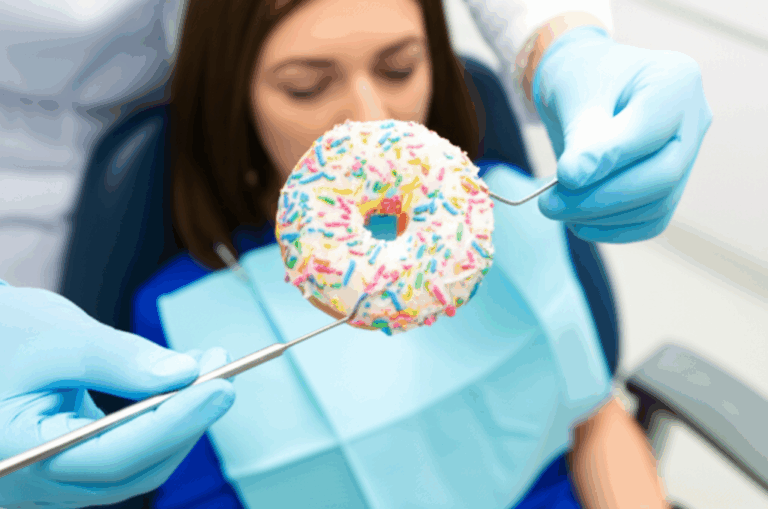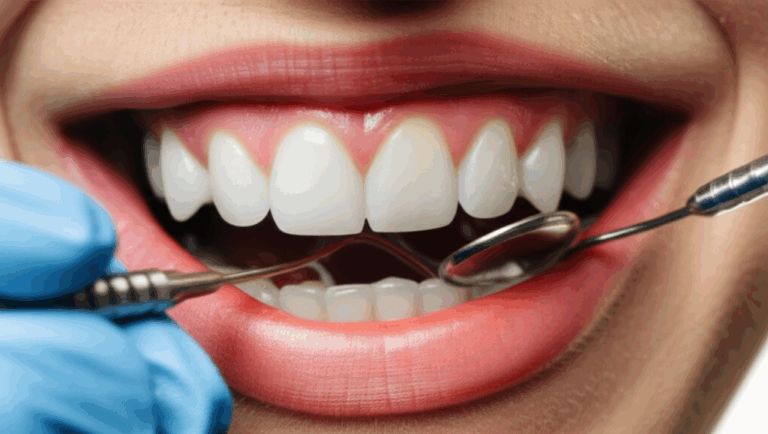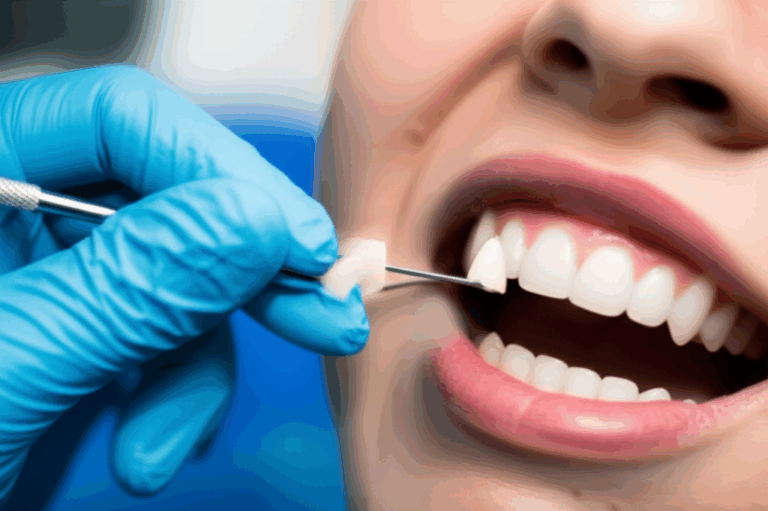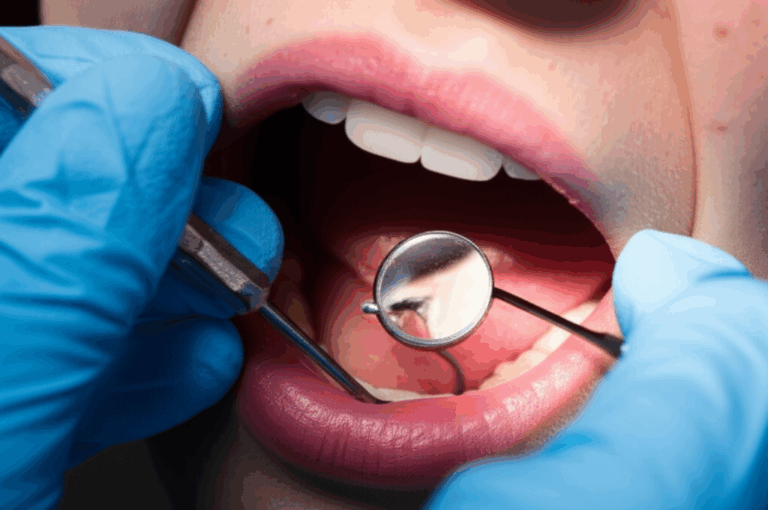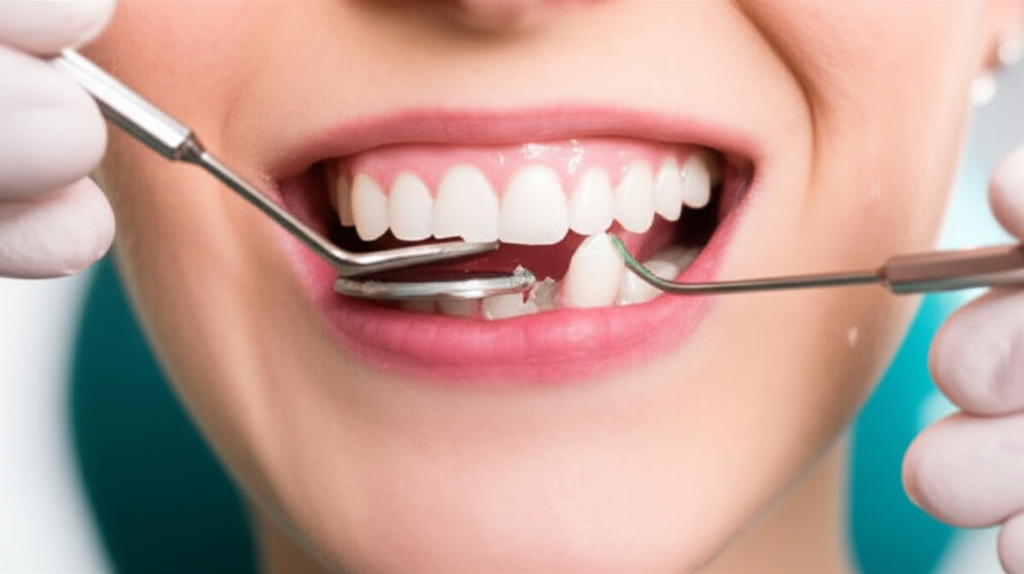
Can a Dentist Fix a Loose Permanent Tooth? Understanding Causes, Treatments, and Prognosis
Do you feel your tooth wiggling when it really shouldn’t? This article shows why you must not ignore a loose permanent tooth, what might be causing it, how dentists fix them, and how you can keep your smile strong for years to come. You’ll get clear answers to your biggest questions and easy-to-understand tips. If you want to save your tooth, keep reading!
Table of Contents
What Does It Mean If a Tooth Is Loose?
Let me get right to the point. Adult teeth should not move.
Think about this: You’re eating an apple and feel your tooth move back and forth. Maybe it wasn’t like that last week. That’s called tooth mobility. Sometimes, a tiny bit of movement can be normal. Teeth are held in place by the periodontal ligament, which is like a little cushion. But if your tooth can wobble or feels “shaky,” there’s probably trouble coming.
Dentists have a special scale for how much a tooth moves:
- Grade 1: Moves just a little (less than 1 mm)
- Grade 2: Moves about 1-2 mm
- Grade 3: Moves more than 2 mm, or can even push up and down
If your tooth feels loose, it’s something to notice. Don’t just ignore it.
Why Did My Permanent Tooth Get Loose?
You may ask, “Why me?” Honestly, there are more reasons than you think. Here are the main causes:
1. Gum Disease (Periodontal Disease)
This is the #1 reason for loose teeth in adults. Germs get under your gums, making them puffy and sore. That’s called gingivitis if not serious. If ignored, the infection starts to chew away the bone. Now you’ve got periodontitis, and your teeth lose their hold. Signs include bleeding gums, bad breath, swelling, and gums pulling away.
2. Injury or Trauma
Did you get hit in the mouth playing sports? Fall off your bike? Even one strong hit can loosen a tooth, crack the root, or break the bone holding it in.
3. Teeth Grinding (Bruxism) or Clenching
You might not know you clench your jaw at night. Over time, this puts strong pressure on teeth and the bone. That can stretch the ligament and make teeth loose.
4. Bite Problems (Occlusal Trauma)
Crooked teeth or a “bad bite” cause uneven chewing forces. It’s like putting weight on one loose leg of a table—eventually, a wobbly tooth can happen.
5. Bone Loss
Things like osteoporosis or some medicines (like steroids or bisphosphonates) can thin the jawbone.
6. Bad Tooth Decay or Abscess
If a cavity or infection gets to the root, it can hurt the bone and gums too.
7. Root Resorption
A rare thing, but sometimes a root can dissolve away from injury or sickness.
Bad habits, poor brushing, pregnancy, or diabetes can also raise your risk. Main point: Your mouth tells you when something’s wrong—pay attention!
Is a Loose Permanent Tooth an Emergency?
Yes, it is.
A loose permanent tooth means you’re in the danger zone. If it’s a child with a baby tooth, that’s normal. But for adults, loose teeth don’t just “grow out” or “tighten back up” by themselves.
Why hurry?
- The longer you wait, the more bone you lose.
- You might lose the tooth for good.
- Infection can spread.
Even if the tooth doesn’t hurt, don’t just leave it. Sometimes, if you go to the dentist early, you can save the tooth. Waiting just makes it worse. Call your dentist as soon as you notice the problem.
How Does the Dentist Check a Loose Tooth?
Don’t think the dentist just has a quick look and that’s all. Dentists have a plan for seeing why your tooth is loose and what to do next. Here’s what usually happens:
1. Clinical Exam
The dentist gently moves your tooth with gloved fingers. They look for:
- How much it moves
- Bleeding or pus
- Gums pulled back
- Signs of grinding
They may use a tool to measure how deep gum pockets are. Deep pockets mean bone loss from gum problems.
2. X-rays
A tooth x-ray or sometimes a CBCT scan shows how much bone you have, if a root is cracked, or if there’s infection under the gums.
3. Health and Dental History
You’ll be asked about injuries, health problems (like diabetes), or drugs you take.
The dentist puts all of this together to make a plan that fits your problem.
Can a Dentist Really Fix a Loose Permanent Tooth?
Short answer: Yes, a lot of times!
Here’s the truth—dentists help save loose teeth every day, if you go soon enough. But waiting too long just makes everything harder. Dentists have many treatments that weren’t around before.
Let me share—my friend had a tooth so loose it moved whenever she talked. She went to her dentist. They found gum disease early, did a deep cleaning, and splinted the tooth. Six months later, it was strong again.
The right fix depends on what’s causing the problem and how loose the tooth is. Sometimes, even a very wobbly tooth can be saved with you and your dentist working together.
What Treatments Save a Loose Tooth?
Let’s talk fixes, because that’s what you want to know.
1. Non-Surgical Gum Treatment
If gum disease caused your loose tooth, your dentist starts with a deep cleaning (scaling and root planing). They use tools to clear out dirt under the gums and smooth out the root. Sometimes, you might get an antibiotic gel or rinse.
2. Surgical Gum Treatment
If you’ve got deep gum pockets or very bad bone loss, your dentist might suggest surgery:
- Flap Surgery: Lifting the gums to clean under them
- Bone Grafting: Putting bone-like stuff where you lost bone
- Gum Grafting: Covering exposed roots with soft tissue from your mouth
3. Stabilizing (Splinting) the Tooth
This is like putting a crutch on a weak leg. The dentist bonds or wires the loose tooth to the ones next to it using bonding material or dental splints. This lets it heal.
4. Occlusal Adjustment
If your bite is the problem, your dentist might shape down certain teeth a tiny bit so pressure is more even.
5. Repairing Trauma
If you got hit or your tooth got knocked out, often the dentist can put it back in and splint it in place, if you go fast—within an hour is best!
6. Nightguards for Bruxism
If grinding or clenching is causing the problem, a custom nightguard can protect your teeth at night. night guard dental lab
7. Root Canal or Filling
If deep decay or infection is causing the problem, a root canal or a big filling may be needed first.
Table: Treatment Options for Loose Teeth
| Cause | Treatment | Success Rate |
|---|---|---|
| Gum disease | Deep cleaning, gum surgery, bone graft, splinting | 80-90% get better |
| Trauma | Splinting, root canal, re-implantation | 90% if done soon |
| Bruxism/bite problems | Nightguard, bite fix, braces | Up to 95% stop it |
| Decay/abscess | Root canal, large filling, pull tooth if bad | High if fixed early |
| Big bone/root loss | Pull tooth and replace it | Implants: up to 98% success |
These numbers come from places like the CDC, the American Academy of Periodontology, and top dental journals. The good news? There’s real hope if you go soon and keep up with care!
For more about strong and nice-looking replacement teeth, see this dental ceramic lab.
When Can’t My Loose Tooth Be Saved?
Sadly, sometimes a tooth can’t be saved. Maybe the infection ate away too much bone, or the tooth is cracked down the root. Your dentist will explain if the tooth is just not fixable.
If you have to lose a tooth, don’t worry. Dentists can pull (extract) the tooth and help you fill the gap. Your choices are:
- Dental Implants: A metal “root” goes into your jaw, with a new tooth on top. Feels and works like a real one. See more at implant dental laboratory.
- Bridges: A false tooth attached to teeth on both sides
- Removable Partial Dentures: Teeth that you can take out when you want
Losing a tooth isn’t the end—it’s just another step to a healthy mouth.
Can a Dentist Make a Tooth Strong Again?
A lot of people ask if a “loose tooth can tighten up.” The answer is: Sometimes, YES!
If bone and gums heal, and you do what the dentist says, you can keep the tooth for a long time. Dental splints and good brushing help a lot. Even a tooth that was loose for weeks might “firm up” after the infection is gone and biting pressure is fixed.
But you do need to follow instructions:
- Go to all cleanings
- Brush and floss the right way
- Wear your nightguard if you grind
- Keep seeing your dentist
Just like you don’t ignore a noisy bike, don’t ignore a shaky tooth.
How Do I Stop My Teeth From Getting Loose Again?
Here’s where you take back control—stopping problems is always best.
Easy Tips for Strong Teeth:
- Brush gently, twice a day with a soft brush
- Floss every day to keep gums healthy
- See your dentist two times a year
- Don’t use your teeth as tools (no bottle opening or nut cracking)
- Eat good foods with vitamins for bone and gums
- Wear a mouthguard for sports
If you see bleeding gums or another tooth feels loose—even just a bit—tell your dentist fast. Usually, early care saves teeth you thought were lost.
If you need strong, nice crowns or bridges, look for a lab that makes good smiles—see this crown and bridge lab.
Does It Hurt to Get a Loose Tooth Fixed?
A lot of people worry about this. Most treatments are not too bad. For deep cleanings or minor surgery, you’ll get numbing shots so you don’t feel pain. Dental splinting uses safe things and gentle moves.
Even if you need a tooth pulled, today’s dentists use numbing and calming steps so it’s over fast. Recovery is usually simple. You might be sore for a day, but it gets better quick.
Really, losing a tooth and living with a gap hurts more than any dental work!
Summary: What You Must Remember
- Permanent teeth should not move—if they do, see a dentist right away.
- Gum problems, injury, grinding, or bone loss are the main reasons teeth get loose.
- Dentists can fix many loose teeth with cleaning, splinting, bite adjustments, or surgery.
- Sometimes you have to pull one—but options like implants and bridges put your smile back.
- Brush, floss, get check-ups, and fix problems quick to keep all your teeth for life.
Don’t wait. Good smiles come from caring now!
Frequently Asked Questions
Can I fix a loose tooth at home?
No, you can’t fix a loose adult tooth at home. Only a dentist can treat the real cause and help save it.
How long does it take for a loose tooth to heal?
If fixed early, things can get better in a few weeks. Full healing, like after bone work, may take a few months.
Should I avoid eating with a loose tooth?
Eat soft foods, don’t bite hard things, and chew on the other side until your dentist says it’s safe.
Can stress make my tooth loose?
Stress makes some people grind or clench their teeth at night, which can lead to loose teeth over time.
What if the loose tooth falls out by itself?
Go see your dentist right away. Losing a tooth is a big clue you have gum problems or bone loss—don’t ignore it.
Remember:
- Act fast to save loose teeth
- Gum disease is the main threat—brush and floss every day
- Always trust your dentist’s advice
- Pick skilled labs and dental teams for strong, lasting teeth
Your smile matters. Take care of it now, and it will take care of you always!

